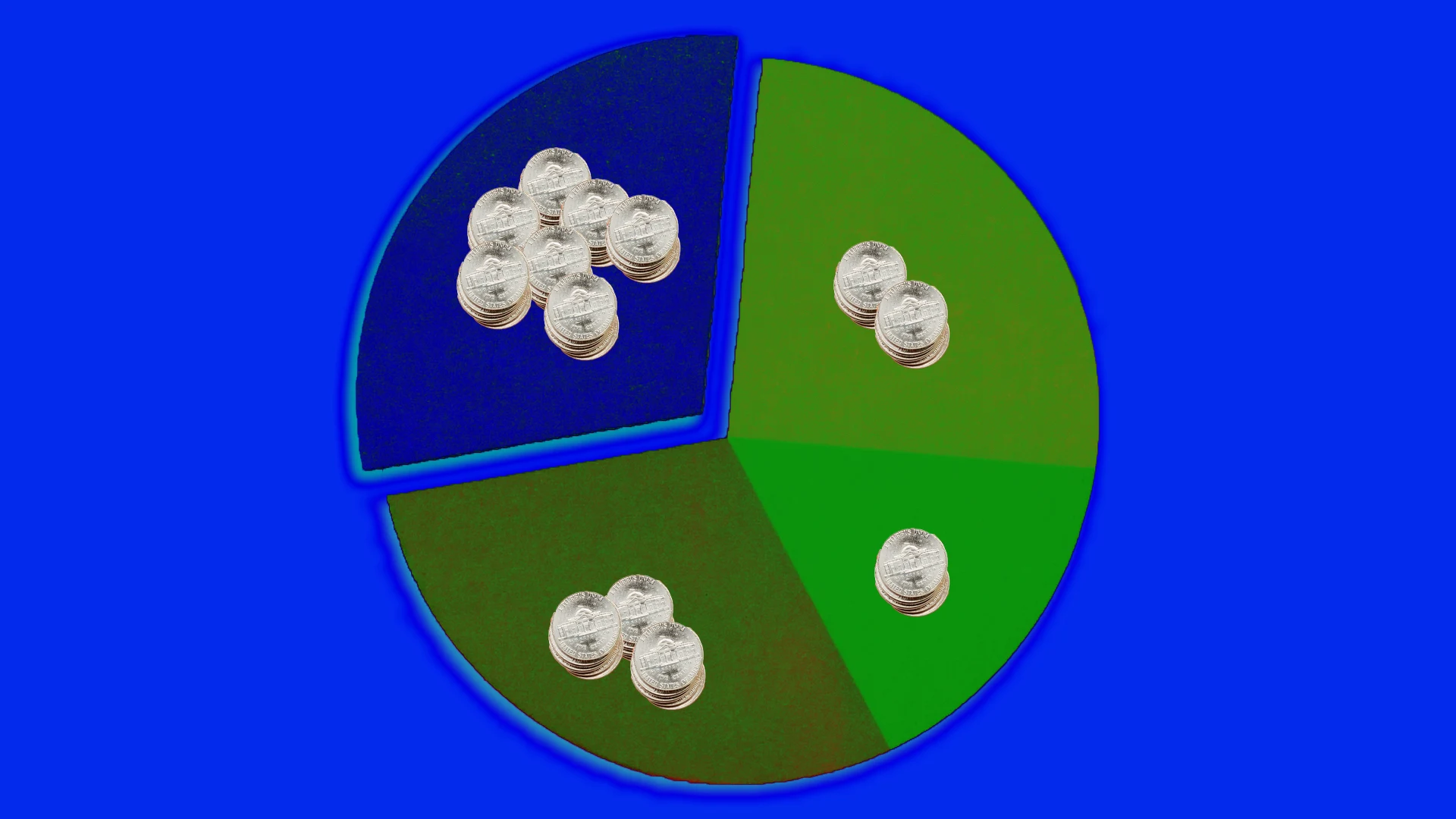Why Every Homebuyer Needs a Home Inspector in Jacksonville
Today, we're diving deep into why skipping this crucial step could cost you thousands down the road, and how finding the right inspector can give you peace of mind as you make this life-changing purchase.

Buying a home is one of the biggest financial investments you'll ever make. Whether you're a first-time homebuyer or you've been through the process before, the importance of a thorough home inspection can't be overstated, especially in Jacksonville's unique climate and housing market. Today, we're diving deep into why skipping this crucial step could cost you thousands down the road, and how finding the right inspector can give you peace of mind as you make this life-changing purchase.
The Jacksonville Housing Landscape: What Makes It Unique
Before we get into the nitty-gritty of home inspections, let's talk about what makes Jacksonville's housing market special. With its beautiful waterfront properties, historic neighborhoods, and rapidly developing suburbs, Jacksonville offers a diverse range of housing options—each with its own set of potential concerns.
Jacksonville's proximity to the coast means homes here face specific challenges that you might not encounter in other parts of the country. From hurricane preparedness to flood risks and high humidity levels that can lead to mold issues, the environmental factors alone make professional inspections essential.
The city's housing stock is also quite varied. You'll find charming century-old bungalows in Riverside and Springfield, mid-century ranches in Arlington, and brand-new construction in areas like Nocatee and Bartram Park. Each era of construction comes with its own common issues and building standards—something only an experienced inspector would recognize.
What Exactly Does a Home Inspector Do?
You might be wondering what happens during a home inspection. Think of it as a comprehensive physical exam for your potential new home. A qualified inspector will methodically evaluate all accessible areas of the property, including:
-
Foundation and structural elements
-
Roof condition and remaining lifespan
-
Electrical systems and panels
-
Plumbing fixtures and systems
-
HVAC equipment functionality
-
Insulation and ventilation
-
Appliances included in the sale
-
Windows and doors
-
Interior walls, ceilings, and floors
-
Exterior siding, drainage, and grading
-
Garage, decks, and other structures
During the inspection, which typically takes 2-3 hours depending on the size and complexity of the home, the inspector will document problems ranging from minor maintenance issues to major defects that could impact the safety, livability, or value of the property.
But a good inspector doesn't just identify problems—they help you understand the implications of their findings. They'll explain which issues are common and relatively inexpensive to fix versus those that might require significant investment. This context is invaluable when deciding whether to proceed with the purchase, renegotiate the price, or walk away entirely.
The Financial Implications of Skipping an Inspection
Let's talk about the potential costs of foregoing a home inspection. While the $300-500 fee might seem like an easy place to cut corners in an already expensive homebuying process, this short-term saving could lead to enormous expenses down the road.
Consider these common scenarios:
Hidden Roof Damage
That seemingly sound roof might have underlying issues invisible to the untrained eye. In Jacksonville's climate, where heavy rains and occasional hurricane conditions are part of life, a compromised roof can quickly lead to extensive water damage. Roof replacements in Jacksonville typically cost between $7,000 and $15,000 depending on size and materials—a significant unexpected expense for a new homeowner.
Electrical System Hazards
Older homes in historic Jacksonville neighborhoods might have outdated electrical systems that don't meet current code requirements. What might seem like a minor inconvenience of frequently tripped breakers could actually indicate dangerous wiring issues that pose fire risks. A complete electrical system upgrade can run upwards of $8,000-$15,000.
Foundation Problems
Jacksonville's sandy soil and proximity to water can create foundation challenges for homes. What appears as minor cracking could indicate serious structural issues that might cost tens of thousands to repair. An experienced inspector knows the difference between cosmetic settling cracks and problematic foundation movement.
HVAC System Failures
Given Jacksonville's hot, humid summers, a functioning air conditioning system isn't just a comfort issue—it's essential. Replacing a failed HVAC system shortly after moving in could set you back $5,000-$10,000. An inspector can evaluate the system's age, maintenance history, and current performance to help you anticipate remaining lifespan.
Water Intrusion and Mold
Florida's humidity creates perfect conditions for mold growth if water intrusion occurs. A thorough inspector will identify signs of past or current water damage that could lead to costly remediation and potential health issues. Extensive mold remediation can easily cost $3,000-$10,000 or more.
The inspection fee suddenly seems like a bargain when you consider these potential financial pitfalls, doesn't it?
Beyond the Obvious: What Good Inspectors Look For
A quality home inspector doesn't just check boxes on a form—they look beyond surface issues to identify potential problems that might not be immediately apparent. Here are some of the less obvious but critically important aspects they evaluate:
Signs of Previous Repairs
Good inspectors are detectives at heart. They can spot evidence of DIY repairs or patchwork solutions that might temporarily mask problems without actually fixing them. That freshly painted ceiling? It might be covering up water stains from an ongoing roof leak.
Drainage and Grading Issues
In Jacksonville's rainy climate, proper drainage around the foundation is essential. An inspector will evaluate whether the property's grading directs water away from the house or toward it. Poor drainage can lead to wet crawlspaces, foundation damage, and mold problems over time.
Pest Infestations
Florida's warm climate makes it hospitable to wood-destroying organisms like termites, which can cause significant structural damage. An inspector will look for signs of current or past infestations and recommend specialized pest inspections if needed.
Hurricane Readiness
Given Jacksonville's vulnerability to tropical storms and hurricanes, inspectors pay special attention to features that might affect a home's storm resilience. This includes roof attachments, window protections, and the presence or absence of hurricane straps in the attic structure.
Insurance Considerations
A thorough inspector understands how their findings might impact your ability to insure the property. They'll identify issues that could lead to insurance complications or higher premiums, like outdated electrical panels, aging roofs, or non-compliant pool enclosures.
The Home Inspection Timeline: When Should It Happen?
Timing is everything when it comes to home inspections. In Jacksonville's competitive market, you'll want to schedule an inspection as soon as possible after your offer is accepted—typically within the inspection period specified in your contract (often 7-10 days).
This timeline allows you to:
-
Review the inspection report thoroughly
-
Get estimates for any necessary repairs
-
Negotiate with the seller based on findings
-
Make an informed decision about proceeding with the purchase
Many buyers make their offers contingent on a satisfactory home inspection, giving them the option to renegotiate or walk away if significant issues are discovered. In hot markets, some buyers might be tempted to waive inspection contingencies to make their offers more attractive, but this is extremely risky and generally not recommended.
Finding the Right Inspector: What to Look For
Not all home inspectors are created equal. In Florida, home inspectors must be licensed by the state, but experience and thoroughness can vary widely. Here's what to consider when selecting an inspector in Jacksonville:
Qualifications and Certifications
Look for inspectors who are members of professional organizations like the American Society of Home Inspectors (ASHI) or the International Association of Certified Home Inspectors (InterNACHI). These memberships indicate a commitment to professional standards and continuing education.
Local Experience
Jacksonville has specific environmental challenges and construction practices that experienced local inspectors will be intimately familiar with. An inspector who has worked extensively in the area will know common issues in different neighborhoods and housing styles.
Sample Reports
Ask to see a sample inspection report to evaluate thoroughness and clarity. A good report should include detailed descriptions of issues, clear photos documenting problems, and explanations of implications.
Reviews and Recommendations
Check online reviews, but also ask for recommendations from trusted sources. Real estate agents who prioritize their clients' interests can often suggest reliable inspectors they've worked with previously.
Inspection Approach
Ask about their inspection process. Do they encourage you to attend the inspection? Will they take time to explain findings in person? The best inspectors view their role as educational as well as technical.
What to Expect During the Inspection: Being an Active Participant
I always recommend that buyers attend their home inspection if possible. Being present allows you to see issues firsthand and ask questions about maintenance needs and potential concerns. Here's how to make the most of inspection day:
Dress Appropriately
Wear comfortable clothes and shoes you don't mind getting dirty. You might be climbing into attics, crawling under decks, or walking through unfinished spaces.
Bring Documentation
If you have disclosure forms from the seller mentioning previous issues or repairs, bring these along so your inspector can pay special attention to those areas.
Take Notes and Photos
While your inspector will document everything in their report, taking your own notes about maintenance tips or specific concerns can be helpful after closing.
Ask Questions
Don't be shy about asking for clarification. A good inspector welcomes questions and will take time to explain what they're seeing and why it matters.
Focus on Major Systems
Pay particular attention when the inspector examines big-ticket items like the roof, foundation, electrical panel, and HVAC system. Understanding these components' condition will help you prioritize any needed repairs or replacements.
Common Issues Found in Jacksonville Homes
Through years of home inspections in the Jacksonville area, certain patterns emerge. Being aware of these common issues can help you better understand your inspection report:
Water Intrusion
Given Jacksonville's rainfall and humidity, water-related problems are among the most common findings. These might include:
-
Roof leaks from damaged shingles or flashing
-
Poor drainage around foundations
-
Crawlspace moisture issues
-
Window and door seal failures
-
Plumbing leaks under sinks or in walls
HVAC Challenges
Air conditioning systems work hard in Florida's climate and often show signs of deferred maintenance:
-
Dirty coils reducing efficiency
-
Clogged condensate lines causing water damage
-
Aging systems near the end of their useful life
-
Improper installations affecting performance
Electrical Concerns
Particularly in older homes, electrical issues frequently appear:
-
Outdated panels with no room for expansion
-
Amateur wiring modifications
-
Missing GFCI protection in wet areas
-
Overloaded circuits
-
Double-tapped breakers
Roof Problems
Florida's sun and storms take a toll on roofing materials:
-
Wind damage from past storms
-
Biological growth due to humidity
-
Improper flashing around penetrations
-
Aging shingles past their serviceable life
Termite and Pest Evidence
The warm climate makes pest issues common:
-
Wood-destroying organism damage
-
Evidence of rodent activity in attics
-
Termite tubes or damage
-
Conditions conducive to pest infestation
The Inspection Report: How to Interpret the Findings
After the inspection, you'll receive a detailed report documenting all findings. These reports can sometimes feel overwhelming, presenting dozens of issues ranging from minor maintenance items to significant defects. Here's how to approach this crucial document:
Prioritize by Severity
Most inspectors categorize issues by severity. Focus first on major safety concerns and structural issues that require immediate attention or significant investment.
Separate Deal-Breakers from Maintenance Items
Every home has maintenance needs—even new construction. Learn to distinguish between normal wear-and-tear issues and true defects that might affect your purchase decision.
Get Cost Estimates
For significant issues, obtain professional estimates for repairs before making decisions. This information is valuable for negotiation purposes and for budgeting if you proceed with the purchase.
Consider Long-Term Implications
Some findings might not require immediate attention but could indicate future expenses. For example, an HVAC system functioning adequately now but nearing the end of its expected lifespan represents a likely near-future investment.
Negotiating After the Inspection: Using the Findings Effectively
One of the most valuable aspects of a home inspection is the negotiating power it can provide. Here are strategies for using inspection findings in your purchase negotiations:
Request Repairs
You can ask the seller to complete necessary repairs before closing. This approach works best for safety issues or items that might affect financing approval.
Credit at Closing
Alternatively, you might negotiate a credit at closing to handle repairs yourself. This can be advantageous when you want control over the repair quality or prefer specific contractors.
Price Reduction
Sometimes a straightforward price reduction makes the most sense, particularly for multiple issues or when you're planning renovations anyway.
Understanding Seller Perspectives
Remember that the inspection report can be surprising to sellers too—they may be unaware of some issues. Approaching negotiations with evidence-based requests rather than accusatory language often yields better results.
Beyond the Standard Inspection: Specialized Assessments
While a general home inspection covers most visible and accessible aspects of the property, certain circumstances warrant additional specialized inspections:
Termite/WDO Inspection
In Jacksonville's climate, a specific Wood Destroying Organism (WDO) inspection is highly recommended and often required by lenders. These specialized inspections focus exclusively on evidence of termites, wood-boring beetles, and other pests that can damage structural elements.
Mold Assessment
If your general inspection reveals signs of moisture issues or visible mold, a specialized mold assessment might be warranted. These inspections include air quality testing and specific identification of mold types.
Sewer Line Scope
For older homes, particularly those with mature trees nearby, a sewer line inspection using specialized cameras can identify blockages, root intrusions, or deteriorating pipes before they become emergency situations.
Four-Point Inspection
Insurance companies often require four-point inspections (examining the roof, electrical, plumbing, and HVAC) for homes over 30 years old. This focused assessment helps insurers evaluate risk.
Wind Mitigation Inspection
This Florida-specific inspection evaluates a home's ability to withstand high winds and can result in significant insurance premium discounts if certain features are present.
New Construction: Why Inspection Still Matters
Some buyers assume that newly built homes don't need inspections since they must meet current building codes. This is a dangerous misconception. Even brand-new homes in Jacksonville's rapidly developing areas can have construction defects. Here's why new construction inspections matter:
Quality Control Variations
With high demand for housing, construction crews sometimes rush or cut corners. An independent inspection provides quality assurance beyond municipal code inspections.
Builder Warranty Leverage
Identifying issues before closing or during the warranty period gives you leverage to have the builder address problems at their expense.
Multiple Phase Inspections
For new construction, consider inspections at several phases:
-
Pre-drywall inspection to examine electrical, plumbing, and framing
-
Final inspection before closing
-
11-month inspection before the typical one-year builder warranty expires
Hurricane and Flood Considerations in Jacksonville
Jacksonville's coastal location makes hurricane and flood resilience particularly important considerations during home inspections:
Flood Zone Assessment
Your inspector should discuss the property's flood zone designation and any observable flood risks, though you'll also want to verify this information through FEMA maps and insurance inquiries.
Storm Protection Features
A thorough inspection will identify hurricane protection measures like:
-
Impact-resistant windows or hurricane shutters
-
Roof-to-foundation anchoring systems
-
Garage door reinforcement
-
Safe room construction
Historical Flooding
Ask your inspector about signs of previous flooding, such as water marks on walls, replacement materials near floor level, or newer electrical outlets raised higher than standard height.
The Cost of Home Inspection: Investment vs. Expense
Home inspections in Jacksonville typically cost between $300 and $600, depending on the home's size, age, and location. Additional specialized inspections will increase this cost. However, considering the potential financial implications of undiscovered issues, this expense represents one of the best investments in the homebuying process.
Think of it this way: a $400 inspection that uncovers a $5,000 plumbing issue gives you the opportunity to negotiate that repair cost with the seller. Even if you end up covering some repair costs yourself, you're making an informed decision rather than encountering an unpleasant surprise after closing.
Digital Tools Enhancing Home Inspections
Today's home inspections often incorporate technology that provides more comprehensive information:
Thermal Imaging
Infrared cameras can detect temperature variations that might indicate moisture intrusion, insulation gaps, or electrical hotspots not visible to the naked eye.
Drone Roof Inspections
For multi-story homes or steep roofs, drone photography allows for detailed roof assessment without requiring dangerous physical access.
Moisture Meters
These devices can detect elevated moisture levels within walls or flooring that might indicate active leaks before visible damage appears.
Electronic Report Delivery
Digital reports with embedded photos, videos, and interactive elements make understanding and sharing findings easier than ever before.
Final Thoughts: Peace of Mind Is Priceless
At the end of the day, a thorough home inspection provides something invaluable: peace of mind. Whether your inspection reveals a clean bill of health or uncovers issues that lead to renegotiation or even walking away from the deal, the knowledge you gain empowers you to make confident decisions about what is likely the largest purchase of your life.
In Jacksonville's diverse housing market, from beachfront properties to historic downtown homes to new suburban developments, each property comes with its own set of potential challenges. A qualified inspector serves as your advocate, helping you understand exactly what you're buying before you sign on the dotted line.
Remember, buying a home without an inspection is like buying a used car without looking under the hood—a gamble few would recommend. When the stakes involve your family's safety, financial security, and future happiness, the relatively small investment in a professional home inspection is truly essential.
Whether you're buying your forever home or an investment property, a quality home inspection is the crucial first step toward confident homeownership in Jacksonville. It's not just about identifying problems—it's about planning for the future, budgeting appropriately, and ensuring the home you fall in love with won't break your heart or your bank account down the road.
Conclusion: The Smartest Decision You'll Make
As we've explored throughout this discussion, hiring a qualified home inspector in Jacksonville isn't just a recommended step in the homebuying process—it's an essential one. From identifying potential safety hazards to uncovering hidden maintenance issues, from providing negotiating leverage to delivering peace of mind, the benefits far outweigh the modest cost.
In a real estate transaction where emotions can sometimes cloud judgment, your home inspector serves as an objective, knowledgeable ally focused solely on evaluating the property's condition. Their expertise helps transform an exciting but potentially overwhelming purchase into an informed decision you can feel confident about for years to come.
So, as you embark on your homebuying journey in Jacksonville, make that call to schedule a comprehensive home inspection. Future you will be grateful for the wisdom of this decision, whether it saves you from a problematic purchase or confirms you've found the right home for your future.



























































































































































